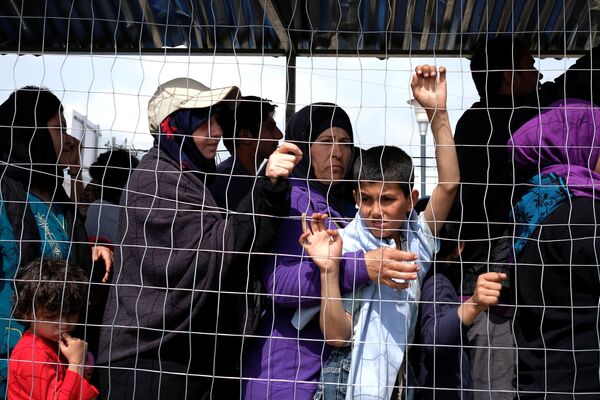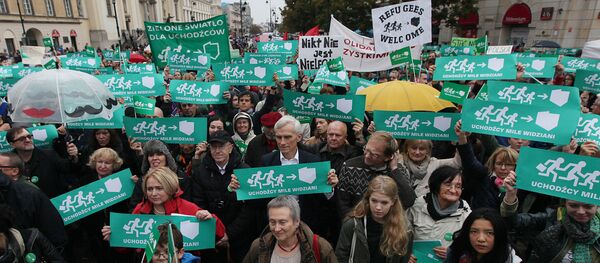The issue has taken hold in domestic politics with the ruling Law and Justice party — whose vice chairman is Polish Prime Minister Beata Szydlo — blaming the opposition Civic Platform party for having agreed to the mandatory relocation plan when it was in power.
"In agreeing to take in refugees, the [previous government] put a ticking bomb under us. We're defusing that bomb," Justice Minister Mariusz Błaszczak told reporters in Brussels.
The European Commission has threatened to impose sanctions on Poland — and Hungary — for refusing to take in refugees under the relocation plan.
The latest opinion poll shows that three quarters of those question in Poland said they supported the government's decision to refuse to take in refugees from Africa and the Middle East.
Sanctions Threat
The Commission agreed, September 2015, to relocate 160,000 migrants from Greece and Italy to other EU member states, according to a quota system, based on population and GDP, among other measures.

Although the figure was revised downwards, to 98,255, only 16,163 have so far been relocated (May 12) under the scheme. However, Poland has long refused to take in a single migrant under the scheme, causing the European Commission to threaten sanctions against Poland.
"Although most member states are now active and pledging and relocating regularly, Hungary, Poland and Austria remain the only member states that have not relocated a single person. This is in breach of their legal obligations, the commitments taken towards Greece and Italy and the fair sharing of responsibility. Austria has however formally pledged to relocate 50 persons from Italy, a decision which the Commission welcomes. Moreover, the Czech Republic has not been active in the scheme for almost a year," the Commission warned.
"There's a risk that we'll see the [European Commission] in court" if it were to impose financial penalties on Poland, the deputy foreign minister, Konrad Szymanski, told the Radio Zet station.



